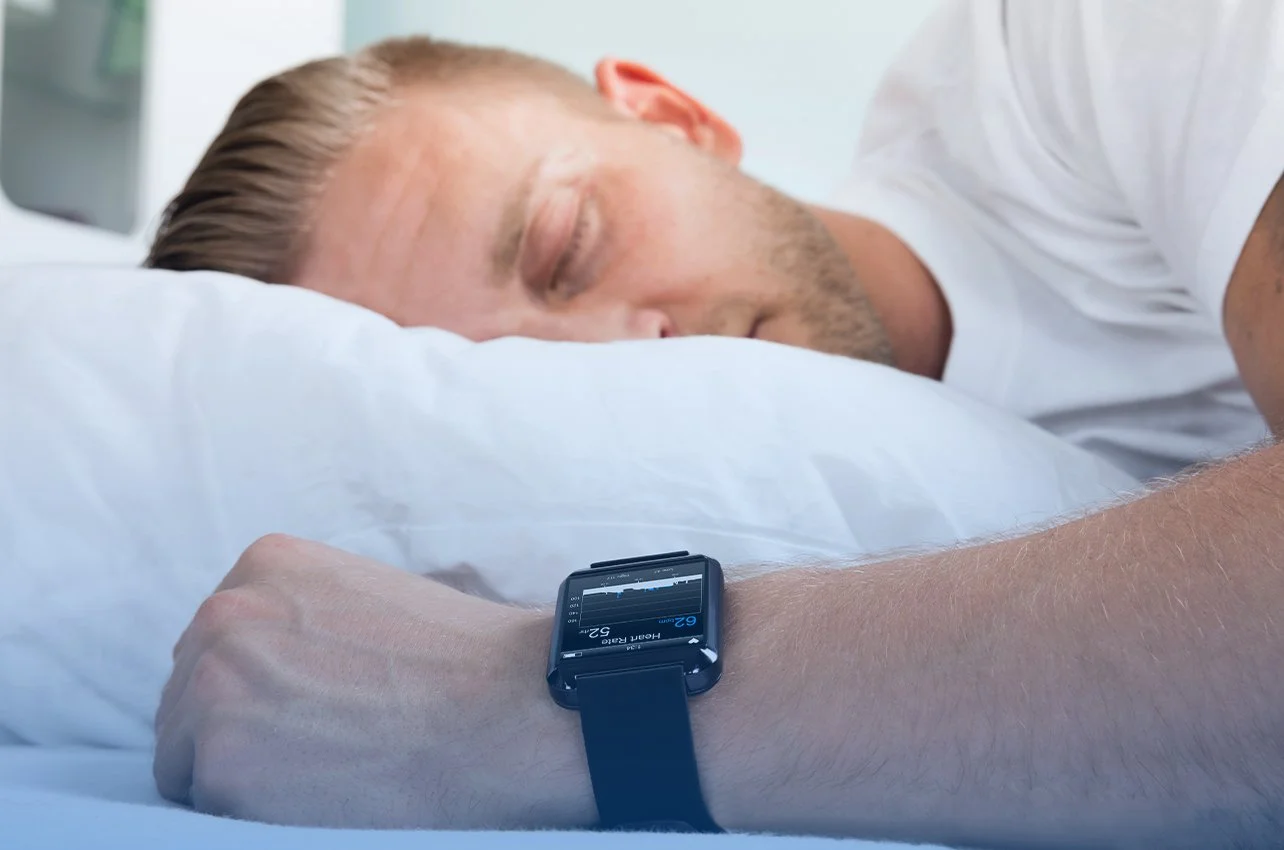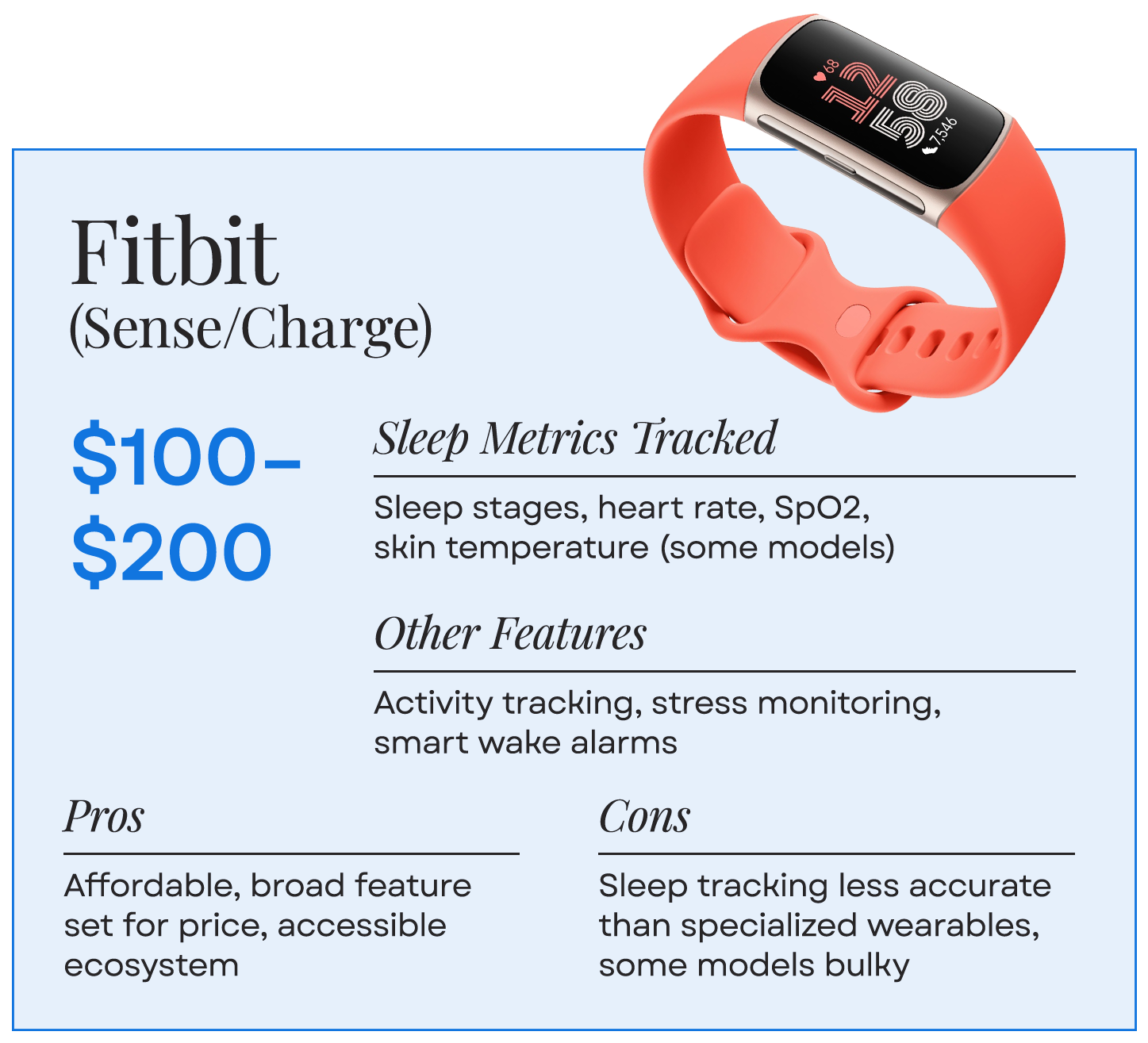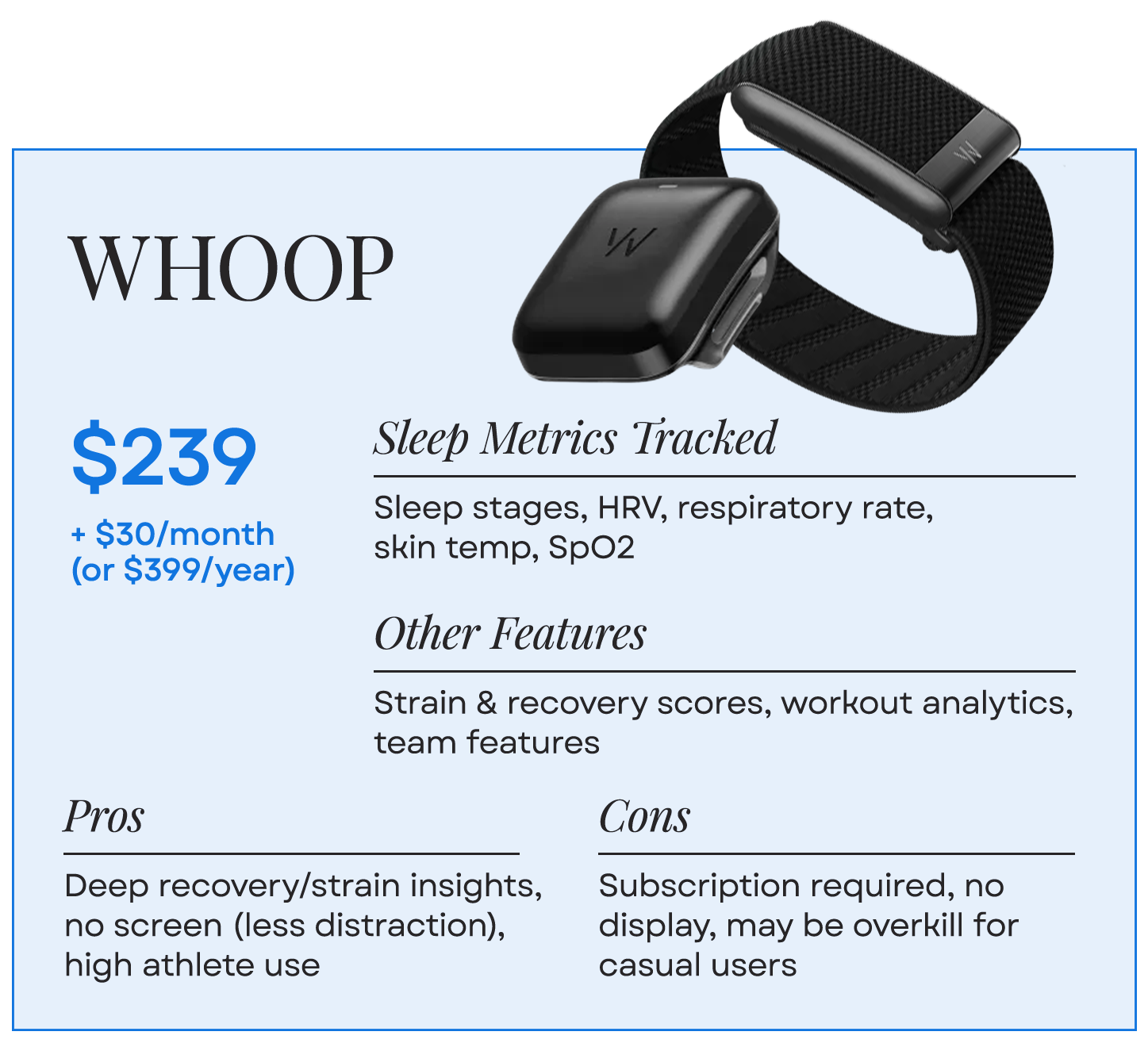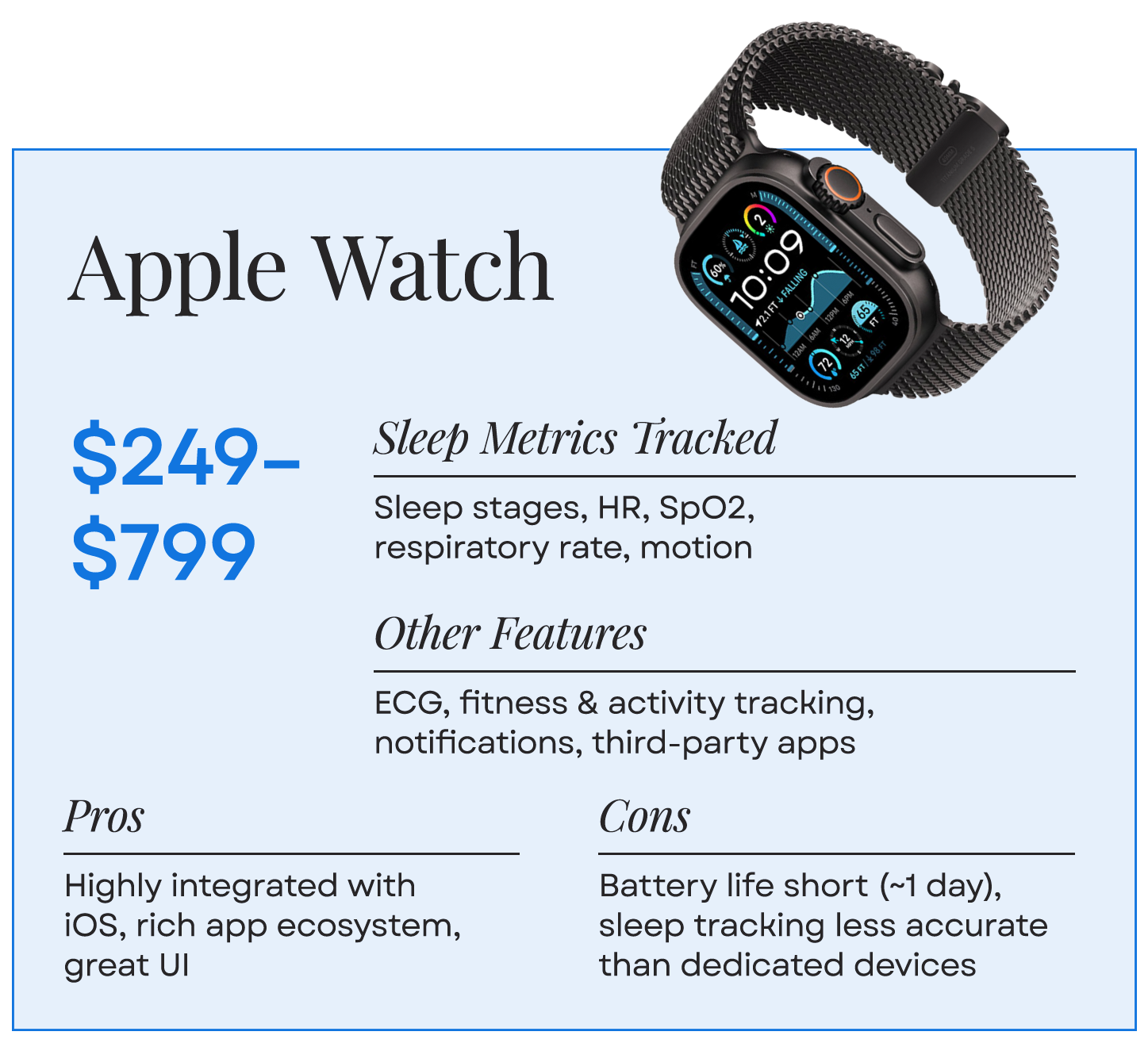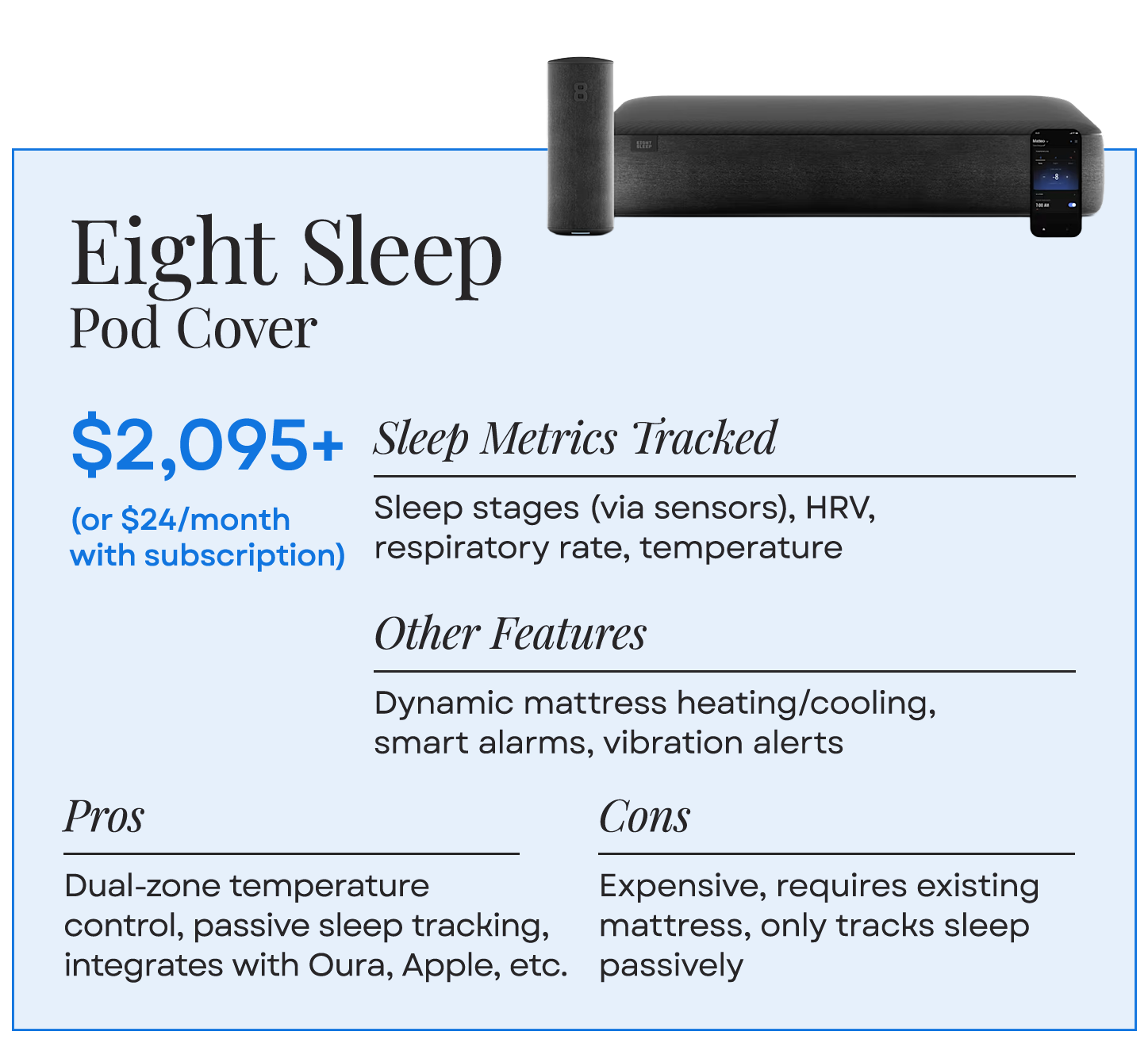Tracker Showdown: Which Wearable Wins for Sleep?
Interested in wearing a sleep tracker but unsure which one is right for you?
Here’s a comparison of the most popular devices to provide some insight:
Our Thoughts on Sleep Trackers
Most consumer sleep trackers, including the ones detailed in our chart, use a combination of physiological signals (such as: heart rate, heart rate variability, respiratory rate, skin or core temperature, and movement) to algorithmically estimate your sleep stages (light, deep, REM), duration, and quality. They are only able to estimate. They do not provide direct measurements of brain activity, and their accuracy often varies. Something as seemingly irrelevant as a person’s skin tone or movement patterns can occasionally affect a sleep tracker’s accuracy.
For anyone needing a true clinical assessment of their sleep (e.g., evaluating for sleep apnea, periodic limb movement disorder, or REM behavior disorder), we recommend an overnight polysomnogram in a sleep lab, which will provide EEGs, EMGs, EOGs, and direct observation, and will be far more accurate than any wearable.
Book your Precision Health Review to learn how a Velocity membership can connect you with deeper diagnostics and expert strategies for optimizing your sleep and long-term health.

